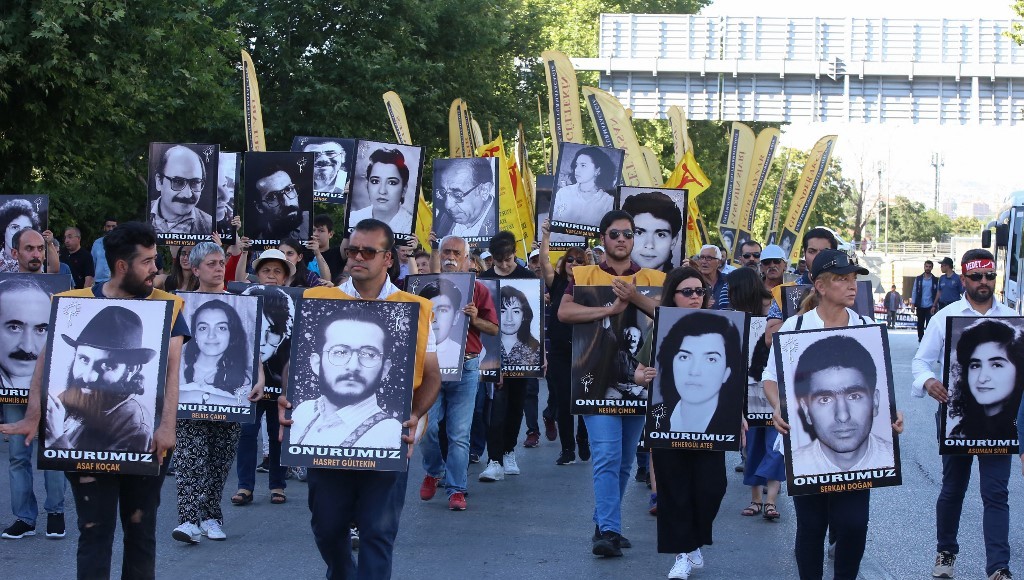The United States Commission on International Religious Freedom (USCIRF) pointed out that discrimination against the Alevi community in Turkey is rampant and pervasive and that the situation under the leadership of President Recep Tayyip Erdoğan is only getting worse, in a message issued on Friday, the 28th anniversary of the Sivas Massacre, the Stockholm Center for Freedom reported.
According to USCIRF, the incident reflected the prejudice and hate the community faced in their native homeland.
“The US government and international community should continue to call on Erdoğan and his ruling AKP [Justice and Development Party] and MHP [Nationalist Movement Party] to recognize Alevi rights,” USCIRF policy analyst John Lechner said in a podcast interview.
On July 2, 1993 an angry mob torched the Madımak Hotel in Sivas province, killing 37 people, mostly Alevi artists and scholars who were there to attend a conference hosted by the Pir Sultan Abdal Culture Foundation (PSAKD).
In attendance was Aziz Nesin, a left-wing Turkish short story writer, hated among religious Sunnis in Turkey, who had become the target of attacks for attempting to translate Salman Rushdie’s controversial novel “The Satanic Verses” into Turkish.
A group of radical Islamists, having been provoked by several local political leaders, gathered in front of the hotel following Friday prayer and accused conference participants of being infidels.
Thirty-three attendees, two hotel staff members and two protesters died in the fire. Nesin was able to escape because the attackers initially failed to recognize him.
In a controversial move President Erdoğan in 2020 used his presidential power to pardon a man who was given an aggravated life sentence for his role in the Sivas massacre.
A number of lawyers who defended the suspects in the massacre later became politicians in Erdoğan’s ruling party.

